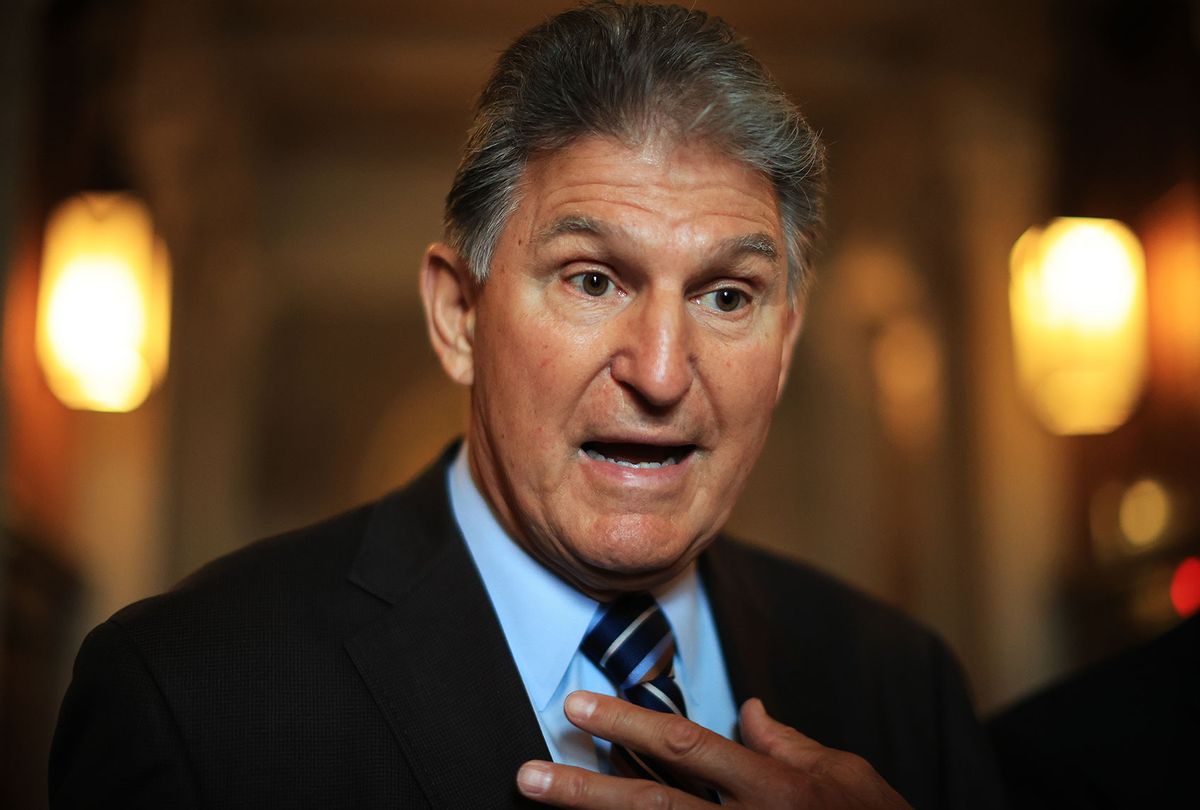To justify obstructing one of his party's top legislative priorities, Democratic Sen. Joe Manchin of West Virginia has repeatedly claimed that the Build Back Better Act would exacerbate rising inflation.
But a new report published Wednesday by the congressional Joint Economic Committee (JEC) argues that Democrats' 10-year, $1.75 trillion reconciliation package would actually relieve inflationary pressures on the economy by slashing the sky-high costs of child care, prescription drugs, housing, and other basic necessities.
"By addressing the threat of climate change," the report adds, "the bill would reduce the role of fossil fuel price spikes and extreme weather in driving future inflation, insulating the economy from key sources of price spikes that can lead to inflation—just as occurred in 2021."
The report goes on to argue that because its costs would be funded by tax hikes on rich individuals and large businesses, the Build Back Better Act "does not present the risk of economic overheating—a concern that was waved aside as previous administrations passed trillions of dollars in tax cuts that were never paid for."
The JEC released its analysis just as the Bureau of Labor Statistics announced Wednesday that the Consumer Price Index—which measures the costs of consumer goods and services—has risen 7% over the past year, the sharpest increase in four decades.
"Very, very troubling," Manchin said of the new inflation figures.
But Rep. Don Beyer (D-Va.), chair of the JEC, offered a different perspective on the data. While acknowledging that rising prices are "straining household budgets"—particularly for those with low incomes—Beyer disputed the notion that the Build Back Better Act would make matters worse.
Want a daily wrap-up of all the news and commentary Salon has to offer? Subscribe to our morning newsletter, Crash Course.
In fact, Beyer argued in a statement, "the House-passed Build Back Better Act would make crucial investments to lower inflation and cut household costs by investing in workers, boosting productivity and making healthcare and child care more affordable—all while being fully paid for by asking the wealthy and corporations to pay their fair share."
"The economic recovery and the Federal Reserve's actions [on interest rates] will bring down short-term inflation in 2022, but the Build Back Better Act presents the best tool at Congress' disposal to reduce inflationary pressure long-term, build economic resilience, and promote economic growth that is stronger, stable, and more broadly shared."
Economists have also pushed back on the argument that the Build Back Better package would worsen inflation, which experts say has been fueled by a range of factors, from pandemic-related supply chain disruptions to corporate profiteering.
"There is also no good way to connect the dots between the Build Back Better agenda, which is currently being debated in Congress, and higher inflation," Mark Zandi, the chief economist at Moody's Analytics, wrote in a recent CNN op-ed. "The legislation provides support for public infrastructure and various social programs, and longer-term, it is designed to lift the economy's growth potential, which will ease inflationary pressures."
RELATED: Joe Manchin apparently no longer supports his own Build Back Better counteroffer
Despite its potential benefits for families, the economy, and the climate, the Build Back Better Act continues to languish in the Senate with no clear path forward as Manchin refuses to drop his objections to the expanded child tax credit (CTC), affordable housing investments, and other key provisions of the bill.
And as the Washington Post reported over the weekend, Manchin no longer even supports his own counteroffer to the White House, which excluded the CTC and other measures.
Nevertheless, Rep. Pramila Jayapal (D-Wash.)—the chair of the Congressional Progressive Caucus—said in a Wednesday appearance on CNBC that she believes Democrats will ultimately be able to pass some compromise version of the Build Back Better Act in the coming weeks.
"In the end, our view is that we can do Build Back Better, very close to the framework that Senator Manchin committed to the president on," Jayapal said, referring to a proposal the White House released in October. "Right now, we are in the midst of a big push on voting rights... As soon as that is done, probably next week, our attention will turn back to Build Back Better."



Shares